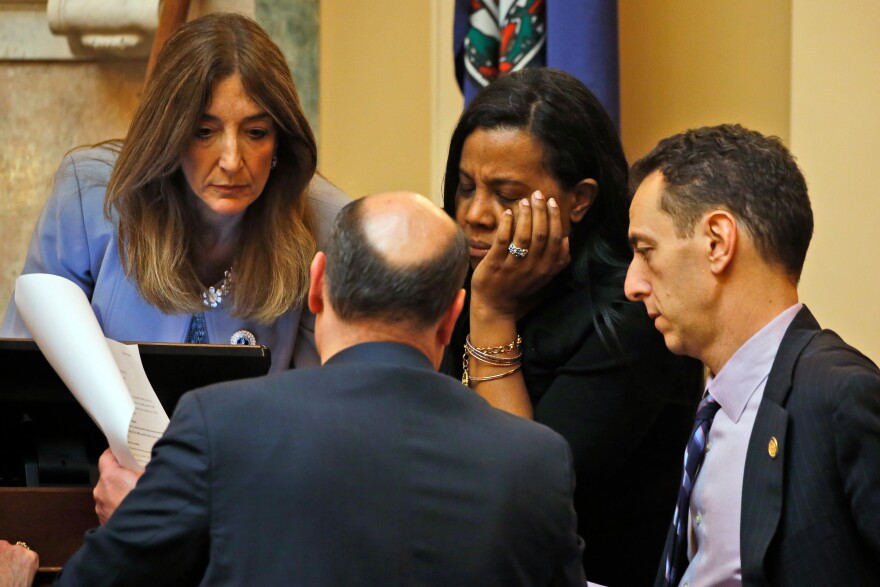Lawmakers are trying to wrap up their special session in Richmond, although they’ll need to resolve several major differences between the House version of bills and the Senate version of bills. And, they’ll be resolving their differences in private.
When the House and the Senate have a bill where there are major differences, and they can’t resolve their differences in public, they do it in a secret closed door conference committee. Lawmakers who have been in the room where it happens say there is no room where it happens.
“There’s normally no room that anybody’s meeting in," says former Republican Delegate David Ramadan, who’s now at the Schar School of Policy and Government at George Mason University.
“I’ve held conference committee meetings in an elevator, in the hallway, heck over lunch on the back porch of Mr. Jefferson’s building,” Ramadan explains.
Most conference committee meetings aren’t meetings at all. They’re one on one conversations where lawmakers work out their differences, sometimes using sophisticated methods of persuasion.
“My signature way of getting people when I was in the building was ‘I've got baklava, come over.’ Or moonshine. That worked as well,” he says.
Delegate Mark Levine is a Democrat from Alexandria who says the conference committees aren’t public because they are, essentially, negotiations.
“And the reason why they’re not, usually, is frankly the same as the principle in quantum physics, which says that if you study an atom it reacts differently than if you don’t study it," Levine explains. "Well if it’s true with atoms it’s even more true with human beings.”
In other words, if conference committees were subjected to the same laws of public disclosure as everything else, he says, they might not be as creative.
“When you have a negotiation, when you have a give and take, in private you’re very free to suggest creative ideas; creative ideas that may be colossally stupid or incredibly brilliant," he says. "But if I have an off-the-wall idea that I haven’t fully thought through, and I want to talk it out with you to see whether it works or not, I can do that in private.”
Delegate Marcus Simon is a Democrat from Fairfax County who says this is the one dark spot in a process that otherwise lets a whole lot of sunshine in.
“The conference committees have always been the dark at the end of the tunnel as opposed to the light. Everything goes down this process in full view. Then it goes through a tunnel where nobody can see it. Then it comes out the other side," Simon says. "I don’t know if that’s the best way to do it, but it’s the way it’s been done.”
That’s how it’s done in normal times. But in the age of Zoom when lawmakers are meeting virtually, he says, the process will have even less transparency.
“I don’t think it’ll be formal, but I do think it may be, frankly, a little more opaque and it’ll be a little bit harder for folks to know exactly what was traded for what to get to a final product,” he explains.
Getting to a final product will be the goal now for lawmakers on a number of key criminal justice reform efforts, everything from limiting the use of chokeholds and the availability of military equipment to how civilian review of police departments will work. And then, of course, there are always differences between the House and Senate on the budget that are worked out by a select panel of conferees that make decisions outside the glare of the public spotlight.
This report, provided by Virginia Public Radio, was made possible with support from the Virginia Education Association.


